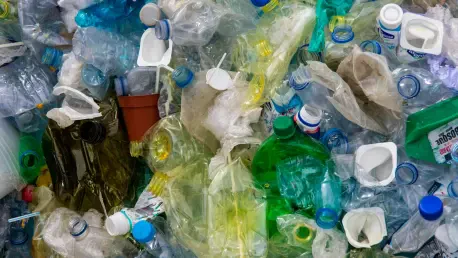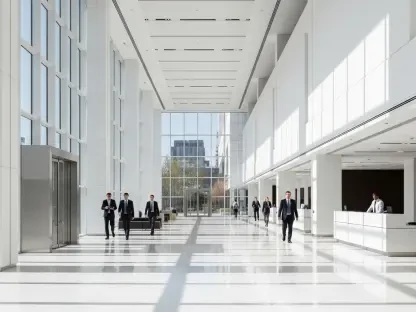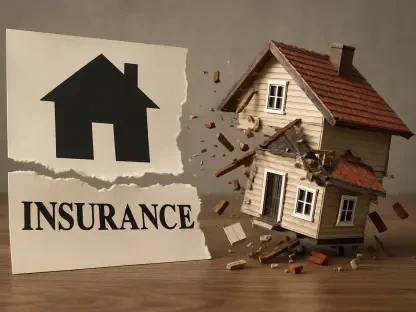Today, we’re thrilled to sit down with Simon Glairy, a renowned expert in insurance and Insurtech, with a deep focus on risk management and AI-driven risk assessment. With years of experience navigating complex sectors, Simon has been instrumental in shaping innovative approaches to underwriting, particularly in niche markets like waste and recycling property insurance. In this conversation, we dive into the significance of gaining prestigious industry recognition, the unique challenges of insuring high-risk sectors, and the future of specialized insurance solutions in global markets.
Can you explain what it means for a company like Helmsgate to gain Lloyd’s Coverholder status and how it impacts their operations?
Gaining Lloyd’s Coverholder status is a game-changer for a company like Helmsgate. It means they’ve been granted the authority to underwrite insurance business on behalf of Lloyd’s syndicates, which is a mark of trust and credibility in the industry. This status allows them to operate with the backing of Lloyd’s global reputation and financial strength, giving them more flexibility to design and deliver policies. Operationally, it streamlines their ability to provide tailored solutions, speeds up decision-making, and enhances their standing with brokers and clients who value the Lloyd’s name.
How has the initial response been from partners and clients since Helmsgate started underwriting under this new status?
From what I’ve observed, the response has been overwhelmingly positive. Partners and clients tend to see this status as a stamp of reliability, so there’s often an immediate uptick in trust and interest. Brokers, in particular, are likely approaching Helmsgate with more confidence, knowing they’re backed by a robust framework. Early on, there might be some growing pains as processes align with Lloyd’s standards, but the ability to tap into new opportunities usually outweighs those initial hiccups.
Why do you think a company would choose to specialize in a niche like waste and recycling property insurance, and what makes this sector so challenging?
Specializing in waste and recycling property insurance is a bold move because it’s a sector with very specific and often high-risk challenges. Companies choose this niche to fill a gap in the market where traditional insurers might shy away due to the complexity. The challenges come from risks like fire hazards—think spontaneous combustion from waste materials—and operational issues like equipment breakdowns or environmental liabilities. It takes a deep understanding of the industry to underwrite effectively, often requiring custom solutions and a willingness to innovate.
With this new status opening doors, what can you tell us about the potential for expansion into new territories for a company focused on such a specialized sector?
Expansion becomes a natural next step with Lloyd’s backing because it provides access to a global network and resources. For a company in this space, I’d expect them to target regions with growing waste management needs—places where recycling infrastructure is developing or where regulations are tightening. The key is adapting to local risks and regulations, which might differ significantly from their current markets in Australia, New Zealand, and the UK. It’s about leveraging their expertise while tailoring their approach to fit new environments.
How does a company demonstrate a commitment to supporting a complex, hard-to-place segment of the property market in practical terms?
In practice, this commitment shows up in how they design insurance products that address the unique pain points of the sector. For instance, they might offer coverage that accounts for the high likelihood of fire or operational downtime, which standard policies often exclude. It’s also about working closely with clients to understand their operations and using data-driven tools to assess risks accurately. This hands-on, tailored approach not only helps clients get the coverage they need but also builds long-term trust with brokers.
What does it mean to extend a value proposition through Lloyd’s capacity, especially when it comes to building relationships with distribution partners?
Extending a value proposition through Lloyd’s capacity means a company can offer more robust and competitive products thanks to the financial backing and global reach of Lloyd’s. For distribution partners like brokers, this translates to greater confidence in the policies they’re placing with clients. It often leads to stronger relationships because the company can provide more comprehensive solutions, tap into broader markets, and offer stability that smaller, standalone entities might struggle to match. It’s a partnership booster, plain and simple.
Looking ahead, what is your forecast for the future of specialized insurance in high-risk sectors like waste and recycling?
I’m optimistic about the future of specialized insurance in sectors like waste and recycling. As environmental concerns grow and regulations tighten, the demand for tailored coverage will only increase. We’re likely to see more innovation, especially with technology like AI and data analytics playing a bigger role in risk assessment and pricing. Companies that can balance high-risk underwriting with sustainable, affordable solutions will thrive. It’s a challenging space, but with the right expertise and backing—like what Lloyd’s offers—it’s poised for significant growth and impact.









